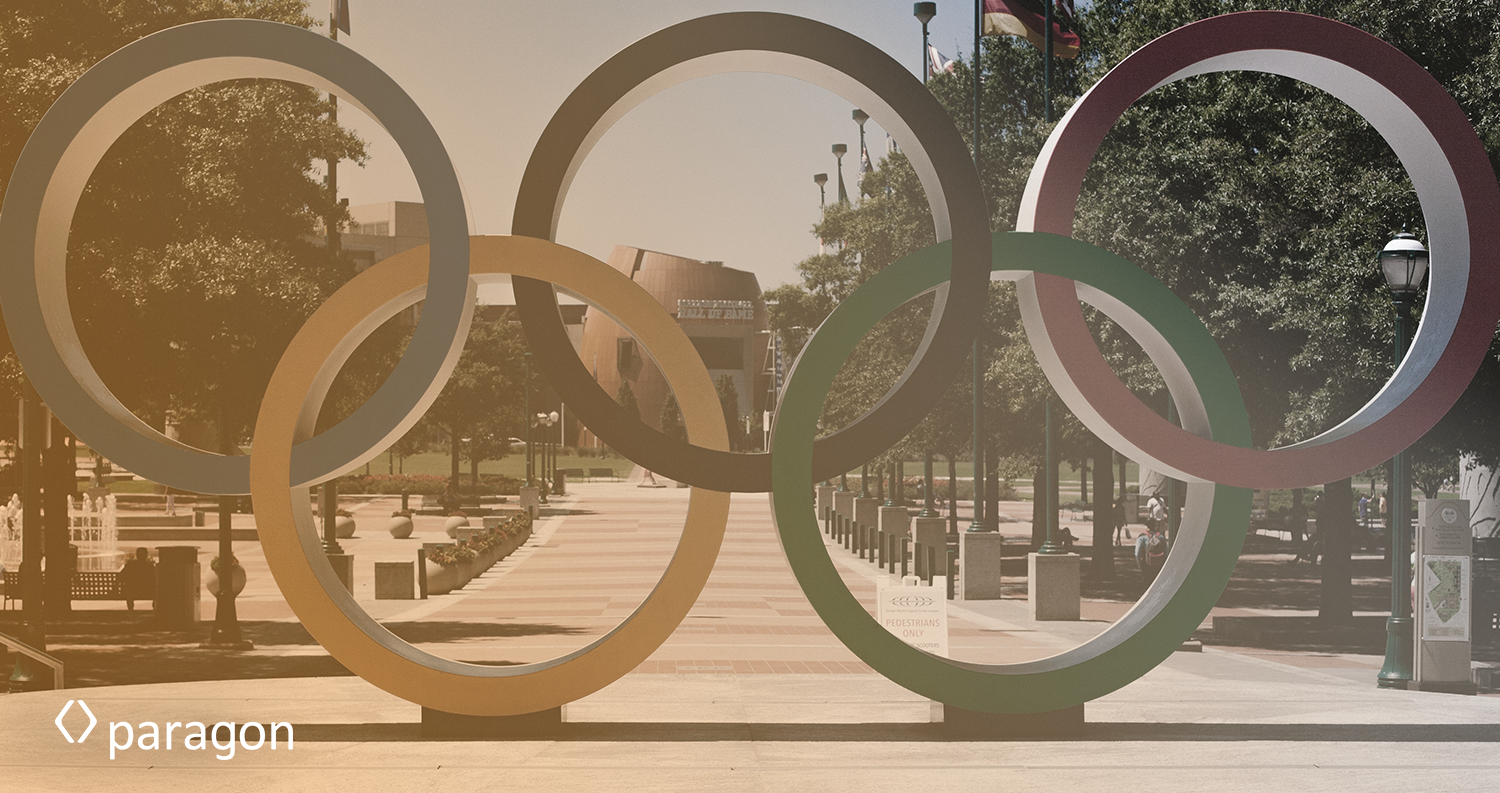Ready… steady… wait… actually go!
After a year’s delay, the starting gun finally sounded in Japan and the Covid-hit Olympics burst into life with the world’s finest athletes battling to transform years of training into gold medals. And marketing teams, for whom the hard sell suddenly felt inappropriate, hoping their rapidly rethought campaigns would win hearts and minds.
The stadiums may have been empty, but the Olympics’ power to reach a global audience remains a phenomenon. Mega brands like Coca-Cola, Airbnb, GE, Intel, Samsung, Procter & Gamble and Visa all contributed to the estimated $3 billion in sponsorship lavished on the Games.
The Olympics may have been a Covid victim, but it failed to catch a financial cold. And it continues to offer a unique four-year marketing opportunity. In the US, for example, NBC Universal, the key broadcaster, revealed revenue for the games was on track to break $1.25 billion – gliding past the $1.2 billion it achieved at the 2016 Rio Summer Olympics.
As it was for the brilliant gymnast Simone Biles on the beam, however, producing the right type of marketing performance was a balancing act. In a near post-Covid world, how have audience expectations changed? Was the best ROI to push the brand to try and win the sales race? Or to embrace the philosophy that – as our more enlightened but generally less successful coaches unconvincingly told us at school – that it is the taking part that counts?
A helping hand
In general, brand messaging was much more touchy-feely, a celebration of the lives of the athletes – from their grueling training regimes to the mental resolve needed to perform perfectly. For its online campaign “The Unsponsored” Ally Financial delved behind the scenes, revealing the complicated lives of lesser-known athletes. They sifted through GoFundMe pages of competitors who were struggling to survive financially and donated $250,000. Three Olympic hopefuls received $25,000 while 17 others split the rest.
And there was no mention of interest rates. In fact no loan, bank or financial guff at all. It was a well-judged idea that chimed perfectly with the brand’s name while reinforcing its key message. “I don’t think there is any time better now that athletes need an ally and the athletes need to know that the brand and the country is behind them,” Andrea Brimmer, Ally’s Chief Marketing Officer, told Forbes before the games began. “They can’t have fans, they can’t have family…This is going to alter their psyche.”
A new ad from Peloton first shown during the opening ceremony of the games starred an exclusive selection of elite athletes including sprinter Usain Bolt, surfer John Florence and the Paralympian athlete and record-holder Scout Bassett. But the billing was deftly shared with everyday Peloton fans. The related tagline, which puts its community centre stage rather than its products, is a cracker: “It’s You. That Makes Us.”
Love is gold
Procter and Gamble (P&G) followed up its excellent Rio 2016 ad ‘Thank You Mom’, which celebrated the mothers behind Olympic and Paralympic champions, with another powerful film. Forget products. There isn’t a swishing of Pantene-d hair in sight. Or a swarthy chin Gillette-d to smooth perfection. Not even a mum triumphantly using Tide to clean a sweaty kit!
No way. The FMCG giant’s latest multi-brand campaign was inspired by the many Olympic and Paralympic athletes who are not only achieving athletic greatness, but are also committing to acts of good and making a positive difference in their communities. It is part of the wider campaign ‘Lead with Love’.
“As Olympic dreams become a reality, the moments that shine brightest will once again celebrate more than athletic performance: showing respect, extending kindness and compassion, and doing the right thing even when it’s the hard thing,” the brand declares on its YouTube channel. “These actions – actions driven by love – inspired our film.”
On your marks. Get set. Stay.
For some brands, the decision was to not take part at all. Toyota was so keen to do the right thing it did not fire up its Japanese ad campaign at all. It did not want to risk offending the population – hence many of its domestic consumers – who were against the Olympic Games going ahead. The risk of spreading Covid, they felt, eclipsed the wonder of holding the event.
Toyota did, however, advertise in other territories, which makes total sense. The giant carmaker could be sensitive to public opinion in Japan while also making worldwide headlines and redirecting domestic TV spend into digital or international media – a perfect solution given its priority is to boost global awareness of the brand.
In general, though, a lot of marketing golds were won. The content strategies were intelligent and sensitive as most brands tried to present themselves as caring and as a valuable part of our everyday lives. Bullish claims about the brilliance of their products were rare. It’s early days, but the near post-Covid world is already producing evidence the world of marketing may have gone through – in some small part at least – a form of existential change.
But old habits die hard…
Do you need help creating an olympic-level marketing strategy? Contact us to learn more about our integrated programs and services.



